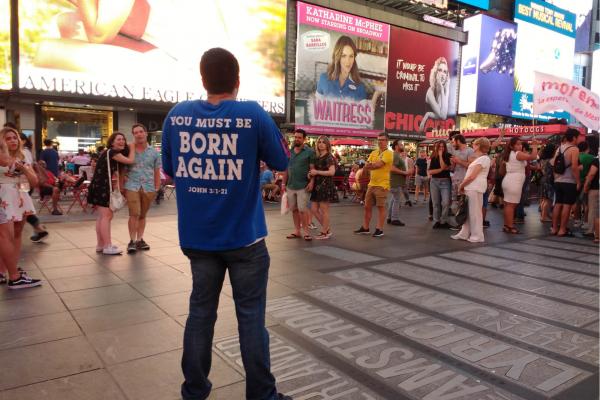Dec 10, 2018
In late September, about 20 men and women sat on folding chairs on the back patio of a large, colonial house in Ohio. The youngest in the group were in their mid-20s; the oldest were in their 70s and 80s. They’d traveled from New York, Nevada, Montana, California, as far as away as Calgary, Canada, to this small city 38 miles northeast of Cincinnati. Many of them wore bright yellow T-shirts with bold red letters that read “JESUS SAVES” or “TRUST JESUS,” and they sat facing a makeshift pulpit, decorated with signs reading “HEAVEN OR HELL?” and “PREPARE TO MEET THY GOD."
Read the Full Article

Already a subscriber? Login
